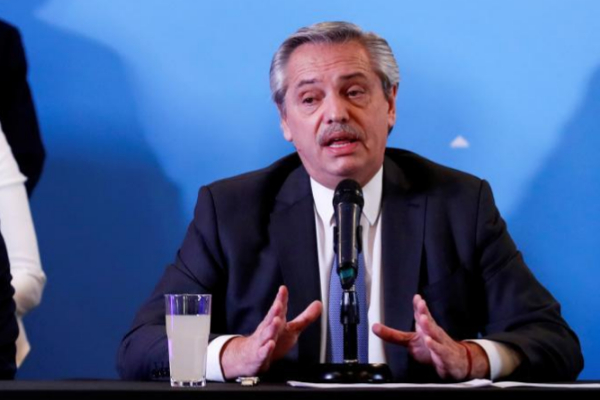Argentines historically distrust, and for good reason, their currency. In an attempt to force a "love for the peso" in a country obsessed with the dollar, the new government of Alberto Fernández announced on Tuesday a series of measures that hinder the purchase of foreign currencies and imply an implicit devaluation of the national currency .
"We need to recover the savings in our currency," said the new Minister of the Economy, Martín Guzmán , announcing that a tax on financial savings in pesos was being written off, while at the same time he broke down the measures to discourage the purchase of dollars, euros or Any other foreign currency: "We also need to discourage savings in a currency that we do not produce, which are dollars."
Thus, Argentines, who had already restricted the purchase of foreign currency at only $ 200 per month, will pay a 30% tax for the purchase of dollars and for any expenses abroad, whether tourism or services such as Netflix, airBnb, Spotify or similar. Excluding expenses related to health, medications, books and research projects, which will continue to pay a dollar of 63 pesos. All the rest will work with one of 83.
The measures are part of the so-called "Law of Solidarity and Productive Reactivation" that the government plans to send to Parliament, and is, according to Guzman, "the first step to resolve the economic and social crisis that Argentina is going through."
70% of what is collected with the "dollar tax" will go to the Social Security system, while the remaining 30% will finance infrastructure and housing works.
Effect on pensions
The government also suspended the effects of the law that establishes the pension update and will pay an extra bonus of 5,000 pesos (about 70 euros) in December and the same in January for those who charge the minimum amount. The increases in gas and electricity were also frozen for the next six months to allow time to discuss a new tariff framework.
Argentines with financial assets abroad must pay more taxes and withholdings (taxes) on agricultural exports will grow to 33% in the case of soybeans and 15% in the case of corn and wheat.
The measures were received with skepticism in a country that has proven many times throughout its history to fix different values to the dollar, which is the nodal price, the key to vault of its economy.
"An implicit devaluation that puts the focus on prices again," La Nación titled, pointing to the 55% annual inflation suffered by the country and the accelerated depreciation of the peso, which in April 2018 was quoted at 18 per dollar and today it is 63 or 83, depending on what value is taken.
Exchange split
"There is the blue (dollar), the official, the tourist and the hour of the 'imposed dollar' will arrive: the official plus a third. So he returns, again, to a scheme of one dollar for activity. For example, the soybean he will have a price of 63 pesos minus 33% to sell his products to the world, but he will have to buy a dollar of 63 plus 30% if he wants to travel in search of business or tourism. "
Clarín agreed in the analysis. "In practice, it works as an exchange split , since there will be a 'commercial dollar', which today is above 63 pesos in banks, which can only be accessed by importing companies, and then a 30% more expensive dollar that can be purchased with a quota of $ 200 per month per person. That will generate a parallel market with an even more expensive dollar. "
After the announcement of the measures, the price of the dollar in the informal market rose to 75 pesos, 12 more than the official price, confirming that in Argentina today nobody knows how much the dollar is worth. Or, rather, how much the weight is worth.
Guzmán, 37, and Nobel Prize disciple Joseph Stiglitz at the University of Columbia, was summoned by Fernandez to take over a country in recession, with an annual inflation rate of 55% and which the minister acknowledged is in suspension of External debt payments.
According to the criteria of The Trust Project
Know more- Alberto Fernandez
- Argentina
Questions with AnswerCristina Kirchner returns and with it also rises the "blue dollar"
EconomíaArgentina acknowledges being suspended from payments and terminates the agreement with the IMF
Macroeconomics Heterodoxy and freeze debt payment, the economic recipe of the new Government of Argentina

